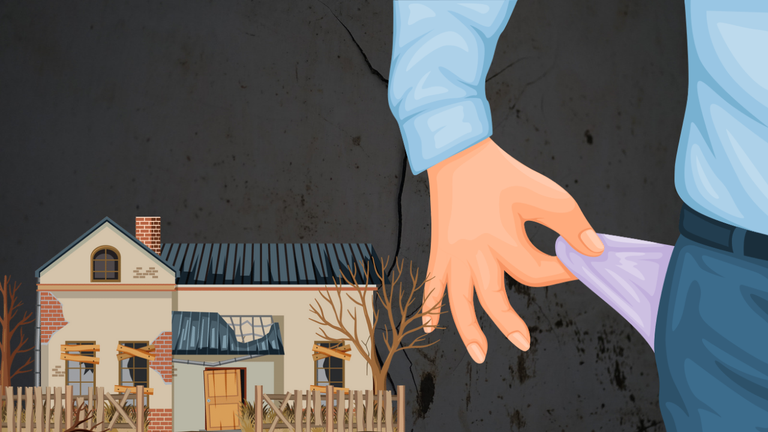
I saw a TV show about an elderly couple looking for a decent house to buy. They had three options to select from.
One of the houses was extremely expensive, but it could provide them with rental income for the rest of their lives; the second house was less expensive, but there was no rental income; and the third house was the cheapest and provided only simplicity and nothing particularly elegant.
So, in the end, I was surprised they chose the cheapest house despite having the option to go higher and secure a rental prospect that will pay them money for the rest of their lives.
Obviously, the third house was worth more; it was not as beautiful as the others, but it turned out they wanted to save more money even though they could spend and earn more.
They chose to keep the rest of their money, possibly because it offered them financial security, but somewhere, somehow, I just felt they only wanted more value for less money.
"More For Less" Never Gets Old
When I was growing up, everyone wanted to save more and spend less, but in this new generation, people want to spend more to be fashionable and respected, rather than to acquire more values.
I went shopping with my cousin a few years ago, and I bought some really cheap stuff, but my cousin would not buy anything as cheap as I did because he believed cheap things had no real value.
Back then, I assumed it was because I was poor that I preferred cheap items, but I have discovered that even if I could afford something expensive, I would not buy it because I believe there are cheaper alternatives that can meet the same need.
Maybe it is not such a good thing, but it is somehow embedded in me and has most likely become a way of life. On the other hand, I discovered something intricate and intriguing. So, people who are very social buy things for the sake of boasting about the price rather than the actual utility of the product.
Price Is A Flex
Apparently it was more nice to tell someone "do you know I bought this wrist watch for £2000?" rather than telling them it was £25. So it is either a mechanism to avoid being shamed for being broke, or it is just for the sake of bragging, but whatever the case may be, I believe we now live in a generation where people are ashamed of being seen as economically challenged or struggling.
When I was younger, I had a cousin who flipped clothes for me, and another younger cousin. Most of my adolescent years, I never spent much money on clothes.
I was glad to do deals with my cousin and get their stuff for secondhand. I was always happy doing these deals because it meant I could wear very nice clothes without having to pay too much. In fact, many people back then were content to buy and use inexpensive items, but as I got older, I met people who no longer wanted to do so.
I have had people tell me to my face many years ago that I wear things that are not good enough, and I laughed a lot because I was not really into external validation; as long as these things were clean, sweet, and decent, I was fine with it.
There is always the impression that rich people buy expensive clothes and such, but on the contrary, it is mostly rap musicians, social media influencers, possibly models, real estate scammers, and so on, especially those who have to dress expensively to give the impression that their bank account is fat and shapeless.
However, I believe that most big spenders are those who have recently started making money and want to flex their financial muscles, and this craze sometimes leads them to purchase expensive items.
It is natural for most people to want to change their lifestyle once they start making money.
There are some things we must spend a lot of money on in order to afford them.
The reason for this is that these items have no alternatives and improve our lives; however, there are some items that people purchase for reasons that you cannot understand. It is simple: some people do not want to be associated with cheapness, no matter how valuable it appears to be.
There were times in Nigeria when women purchased expensive foreign hair. In reality, it was difficult to distinguish between real and fake hair.
The value of this hair was determined by emotion and sentiment. They were not like gold or silver, which have a constant resale value, but most women back then wore these hairs to demonstrate their financial strength or that of their benefactors.
Money Will Always Be Slow To Enter & Quick To Spend
There are numerous negative consequences to these financial behaviors. For example, when producers assess their customers' behavior, it largely determines what they produce and how they price it.
This means that pricing is determined by how much prospective consumers are willing to pay on average, rather than the cost of production at many levels. In an unregulated market, producers may be greedy.
The market is theirs to exploit as they see fit, and this is because most people want expensive items for the sake of flexing the costs rather than the utility they provide.
For someone like me, I want to save as much money and pay as little as possible, unless it is impossible.
This is not just because money is difficult to come by; I believe I do not have anyone to please. I do not keep any social circles.
Perhaps if I did, I would want to join the trend or be tempted to. However, I believe there is a market that caters to people who want to get more for their money.
Interested in some more of my works
Is it Easy To Make Money?
Nigeria: A Unique Business Market & Industry
Virtual Bank Apps In Nigeria: An Experience Of Gamification
How To Find The Next "BIG" Meme Coin
Personal Finance: Achieving Intentional "Saving" Goals
Playing The Survival Game: Human Nature In Introspection
"Un-PAYING" The Debt You Owe

Interested in some more of my works
Is it Easy To Make Money?
Nigeria: A Unique Business Market & Industry
Virtual Bank Apps In Nigeria: An Experience Of Gamification
How To Find The Next "BIG" Meme Coin
Personal Finance: Achieving Intentional "Saving" Goals
Playing The Survival Game: Human Nature In Introspection
"Un-PAYING" The Debt You Owe

Posted Using INLEO


